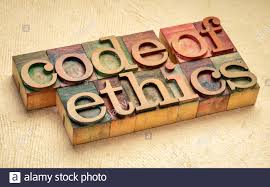Professional values have always been considered as integral to the profession.
Values shape the direction of the profession, and in many ways members of the general public evaluate the profession if the practitioners adhere strongly to the values that they cherish.
The contemporary civil service administration is not only concerned about the efficiency and effectiveness of civil service but also the ethical conduct of the civil service.
Professionalism in the civil service is an over-arching value that determines how its activities will be carried out. It encompasses all other values that guide the public service such as loyalty, neutrality, transparency, diligence, punctuality, effectiveness, impartiality, and other values.

Civil service professionalism embraces the notion that those people who join the civil service need to be inculcated with shared values and trained in basic skills to professionally carry out their official duties.
Complementary to this process is a need to set up management structures to ensure that a civil service ethos and competencies achieved.
Civil service ethics is defined as broad norms that delineate how civil servants as agents of the state and, where applicable, as members of an established profession such as accounting, law, etc. should exercise judgment and discretion in carrying out their official duties.
Civil service ethics is to promote ethical practice and supports ethical practitioners in the civil service which eventually will affect the larger society.

Lewis & Gilman in their book, The Ethics Challenges in Public Service: A problem solving guide (Third ed.), published in 2012 mention that there are three reasons of why public administrators need to be ethical. First, due to ethics is itself important. Secondly, the public service functions depend on trust and finally, the public is highly sceptical of the public administrators’ ability to behave ethically.
With these reasons given, the civil servant cannot afford to act unethically.
Every stakeholder has the opportunity to check the behaviour of the civil servant. The media is attentive to any unethical conduct of the civil servant.
Coverage on corrupt activities of civil servant always rouses huge interest amongst the public.
The public using the social media platforms have since extensively contribute to the lively discussions on unethical behaviour of the public officials.

The great attention given to ethics in the civil servant is because it personifies the government.
Therefore, any unethical conduct may significantly affect the trust and confidence of the public onto the government.
Being a responsible civil servant is more than just being ethical because it means one is accountable to his actions in relation to other people.
It is well documented in theoretical studies that smooth operational civil service helps to fostering good policymaking, effective service delivery, accountability and responsibility in using public resources which are main characteristics of good governance.




